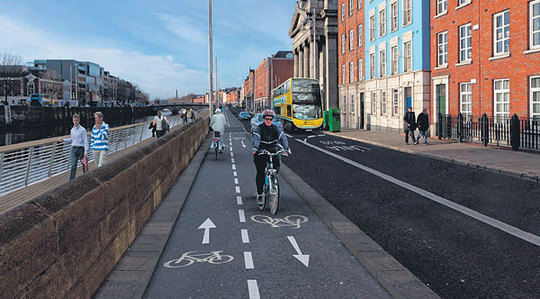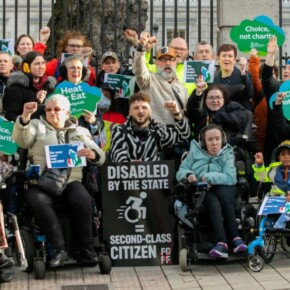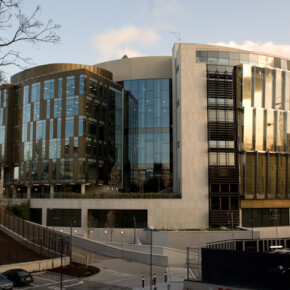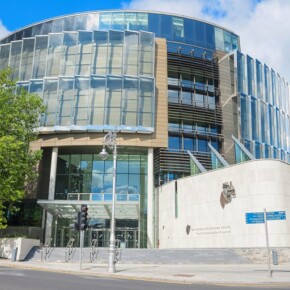IBEC objections to traffic plans “disingenuous”
Mike Finnerty 29 May 2024
IBEC’s objection to the Dublin city centre transport plan has been called “disingenuous.”
First reported by RTÉ, IBEC objected to plans to make Dublin city centre traffic-free from August, claiming it will impact access to the city centre and hinder business.
Under the plans, places like College Green and Parliament Street will become fully pedestrianised, while Bachelors Walk and Aston Quay will only become accessible to buses, taxis, cyclists and pedestrians on the Northern side of the Liffey.
Aidan Sweeney, head of infrastructure and environmental sustainability at IBEC, said that “further detailed consultation is needed” despite public consultation taking place between August and December of last year and IBEC themselves not making a submission during the process.
Sweeney said that more information was needed about how the traffic plans would affect the Metrolink project.
“We are calling on Dublin City Council to pause any implementation of the plan to provide for a comprehensive engagement with stakeholders within the city centre on how such proposals will work alongside recommendations from the new task force.”
“Dublin is seen as difficult to access for shoppers, visitors, businesses, and staff, it will adversely impact the economic and social life of the city. In short, we need a city that works now and into the future.”
“The proposed traffic changes do not adequately reflect the reality of businesses operating within the city centre; these businesses are critical to the life and vibrancy of the city centre, creating employment and footfall, whilst also attracting shoppers, visitors, and tourists,” he said.
IBEC’s 11th-hour intervention has been dubbed “disingenuous” by Labour councillor Darragh Moriarty, who noted that IBEC were not among the over 3,000 submissions to the public consultation process.
Moriarty said IBEC’s last-minute intervention “makes a mockery of the consultation period of the Plan which Dublin City Council (DCC) organised last year.”
“At IBEC’s own request, Dublin City Council put on information and briefing sessions with IBEC members on what these plans would entail. And what did IBEC do? Nothing. They didn’t write so much as a sentence of feedback during the consultation phase.”
“Now they pipe up, a couple of months out from the first phase of implementation, attempting to derail the entire plan,” the South-West Inner City councillor said.
“We cannot allow a few, very loud, voices who failed to engage when they had the chance, now disrupt a well-considered and much-needed plan for our city’s future. Dublin City Council must reject this last-minute rejection and proceed with the implementation of the plan without delay.”
Moriarty said “I’m constantly meeting people in town – delivery drivers, tradespeople, maintenance workers etc – who need to travel into and around town for work. We absolutely must ensure Dublin City Council makes it clear what the best routes for workers through the city are.
“Ironing out those details and making this plan work doesn’t mean putting the whole thing on pause and kicking it to row Z, as IBEC appears to be hoping for.”
“The aim of the City Centre Transport Plan is to prioritise road space for those who want to spend time in our city centre, as opposed to those cutting through the city to go somewhere else.”
Moriarty’s criticism of IBEC was echoed by Green Party councillor Michael Pidgeon, who told The Journal in April “I can’t remember a public consultation that had so many responses and I think it’d be a real shame if we were to disrespect the time and energy that people put into those submissions and just threw it all out.”
April’s meeting of Dublin City Council saw a number of councillors place a last-minute bid to scrap the implementation of the plan, which was defeated by 25 votes to 22.
Environmental journalist John Gibbons said “these plans have already undergone extensive public consultation, everyone has had their say, Dublin City Council has voted in favour yet now, IBEC comes along and tries to undermine entire process,”
“The contempt for democracy is palpable,” he remarked.
Analysis from Dublin City Council found that 6 in 10 cars are travelling through the city, which is a major factor in Dublin’s chronic traffic congestion.
Research published in January 2023 showed that Dublin is the 12th worst city in the world for traffic congestion.
Dublin found itself ahead of other European capitals such as Rome, Brussels and Bucharest in research carried out by American company Inrix.
The Dublin Commuter Coalition said, “private car traffic using the core of the city centre as a through road is a major obstacle to reliable and dependable public transport.”
“A reduction in private car traffic, which isn’t destined for the city centre but only passing through, is also adding to the unease and fear of many people from choosing to cycle in and out of the city.”
They said that the transport plan would also “unlock” the city for more public green areas for socialising, which in turn “will encourage more people to view Dublin as a destination, not a through road.”
Minister for Transport Eamon Ryan said it was “ridiculous” the traffic plan has taken so long to proceed and bemoaned delays in Ireland’s planning process, saying that Dublin has fallen behind the likes of London and Paris when it comes to tackling overhauling their transport systems.
“We need to actually deliver real big effective change. A lot of the work in the last three years was design work, getting things ready – now we build,” he said.











